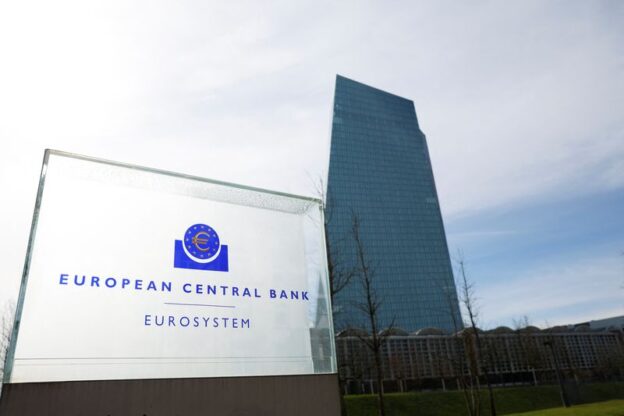© Reuters. FILE PHOTO: A view shows the logo of the European Central Bank (ECB) outside its headquarters in Frankfurt, Germany March src6, 2023. REUTERS/Heiko Becker
FRANKFURT (Reuters) – European Central Bank interest rate hikes are in their final stretch, ECB Vice President Luis de Guindos told an Italian newspaper, while warning that higher borrowing costs could put stress on banks’ asset quality, even if indicators so far remain healthy.
The ECB has raised rates by a combined 375 basis points since last July and has promised further increases, but at a more measured pace of 25 basis point increments, after oversized moves in the early part of its tightening campaign.
“We have now entered the home stretch of our monetary policy tightening path,” Il Sole 24 Ore quoted de Guindos as saying on Sunday. “And that’s why we are returning to normality, to 25 basis-point steps.”
These rate hikes improve banks’ lending margins but could also make it more difficult for some borrowers to repay their debts, lifting the portion of non-performing loans or NPLs.
“At the moment, the improvement in margins more than compensates for the potential losses from the growth in NPLs,” de Guindos said.
“The combination of a slowing economy and the interest rate hikes will bring a rise in the cost of funding for banks and possibly an increase in non-performing loans.”
ECB supervisory chief Andrea Enria earlier told Croatian newspaper Vecernji list that the ECB is seeing “some early signs” of loans being paid with a delay, an indicator that NPLs could be rising.
“We do not expect a wave of NPLs, but now is not the time for complacency,” de Guindos added.
De Guindos also warned about so-called shadow banks – a category including non-bank financial firms such as funds or insurers – that are experiencing “some tension” given that they are highly leveraged and more are exposed to liquidity risk.
Providing the ECB’s first estimate on the effects of quantitative tightening, or the reduction of the bank’s massive holdings of government debt, de Guindos said this had increased src0-year government bond yields by between 60 and 70 basis points, with rate hikes having had a far bigger effect.

Comments are closed